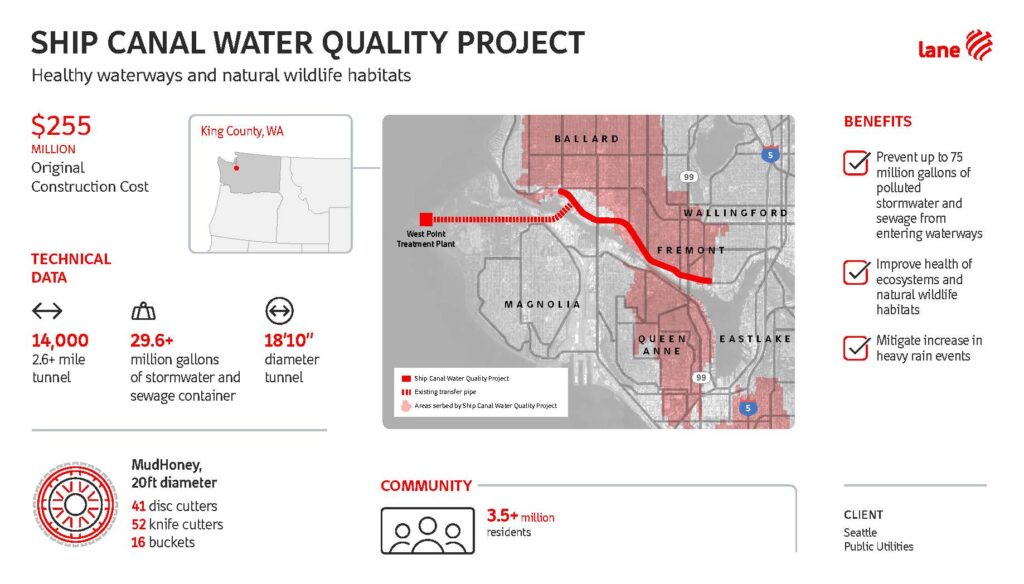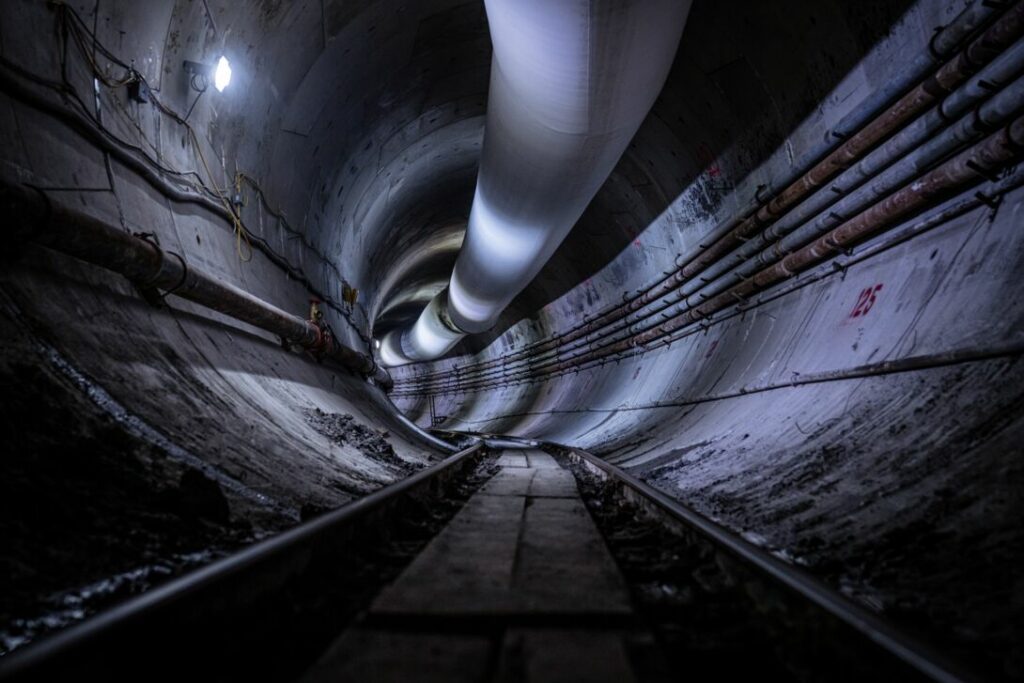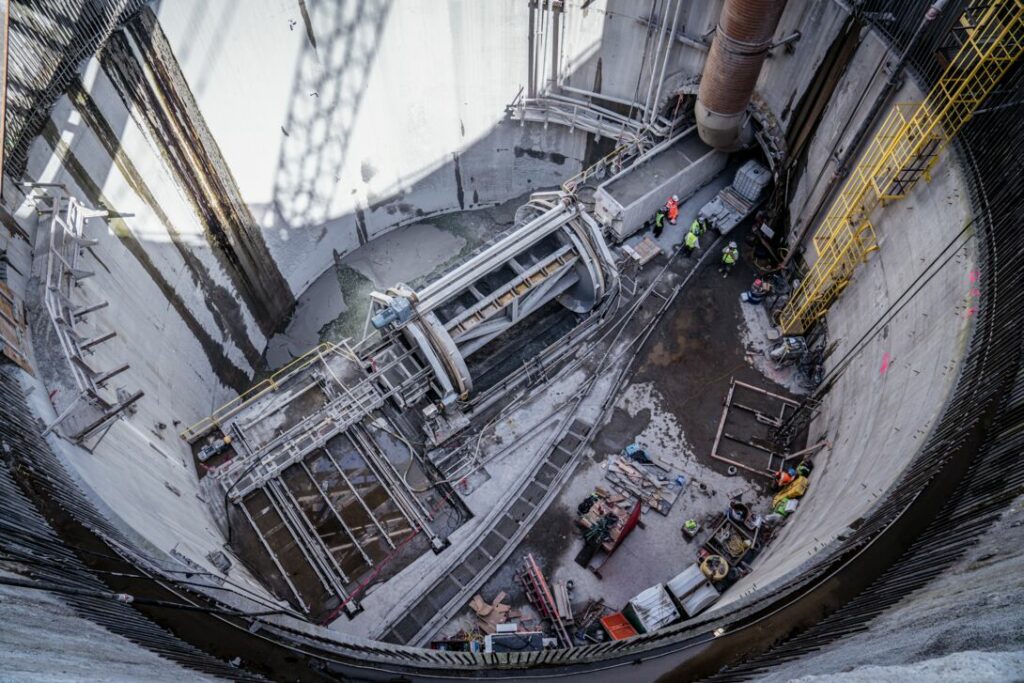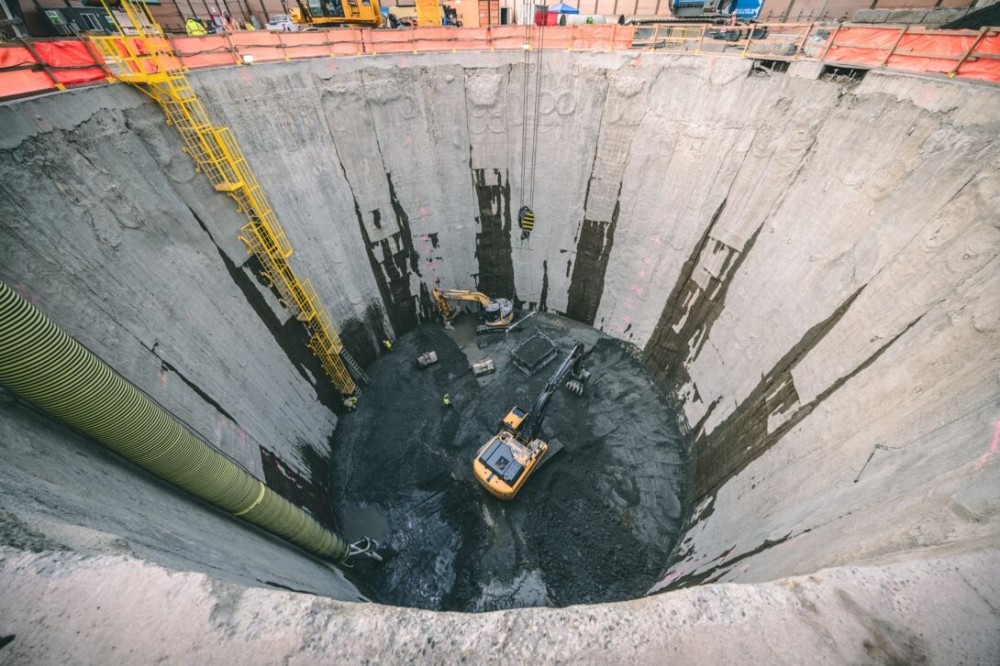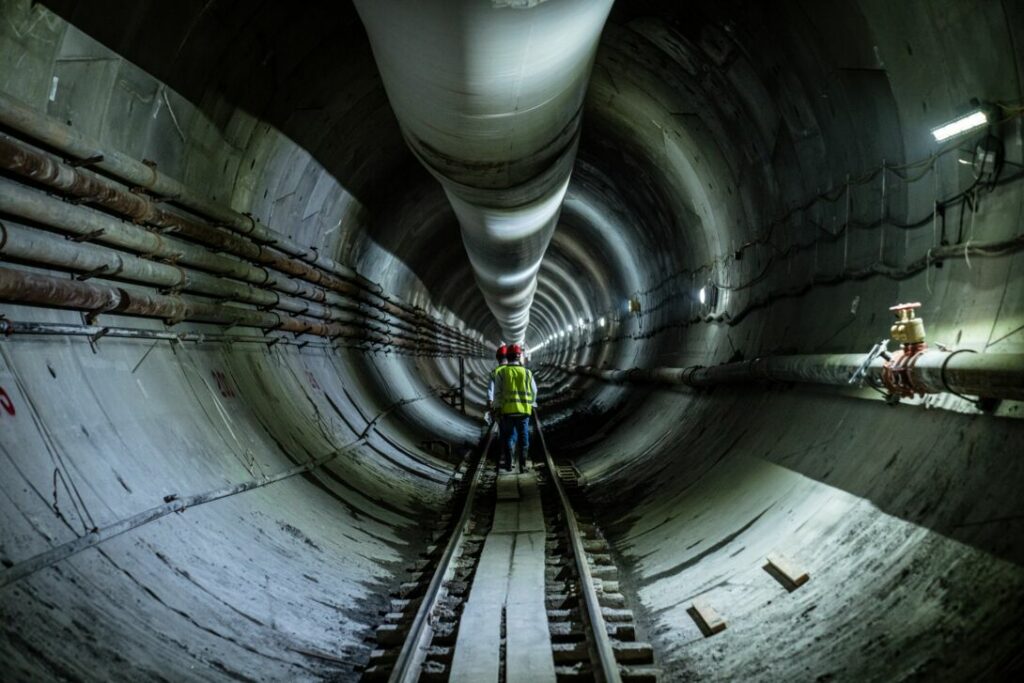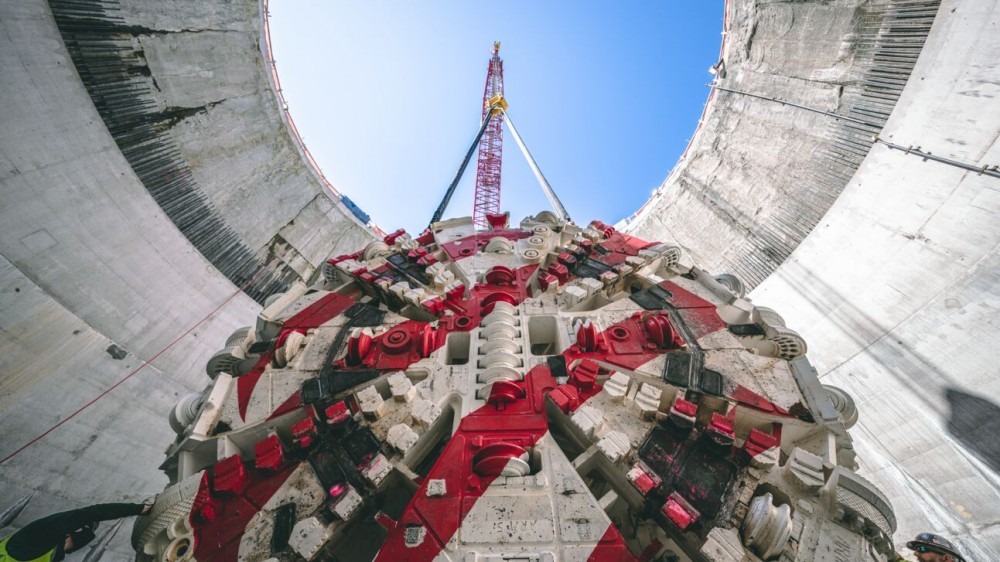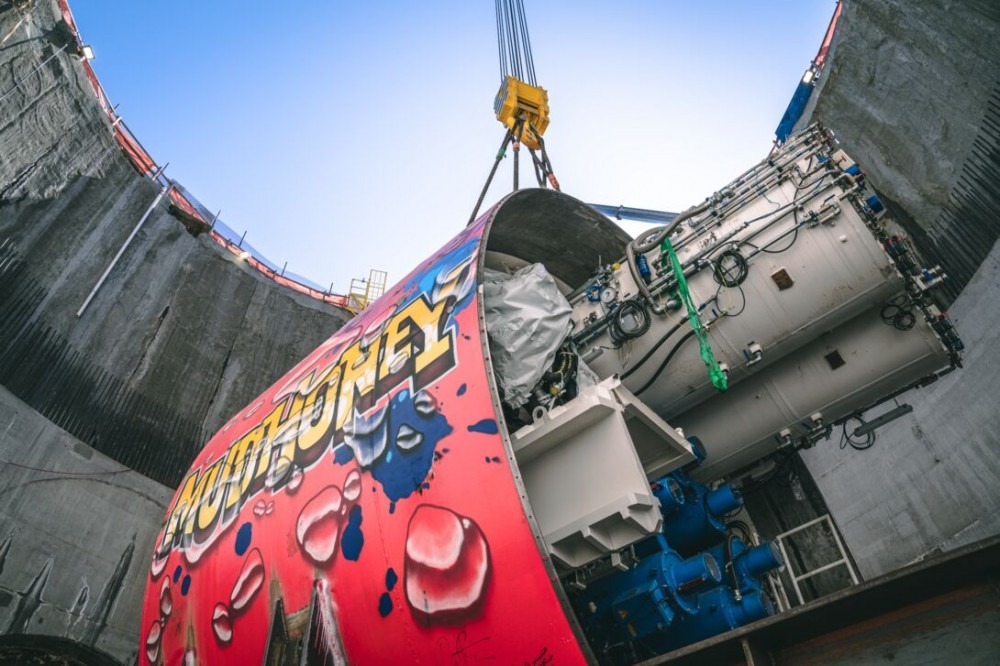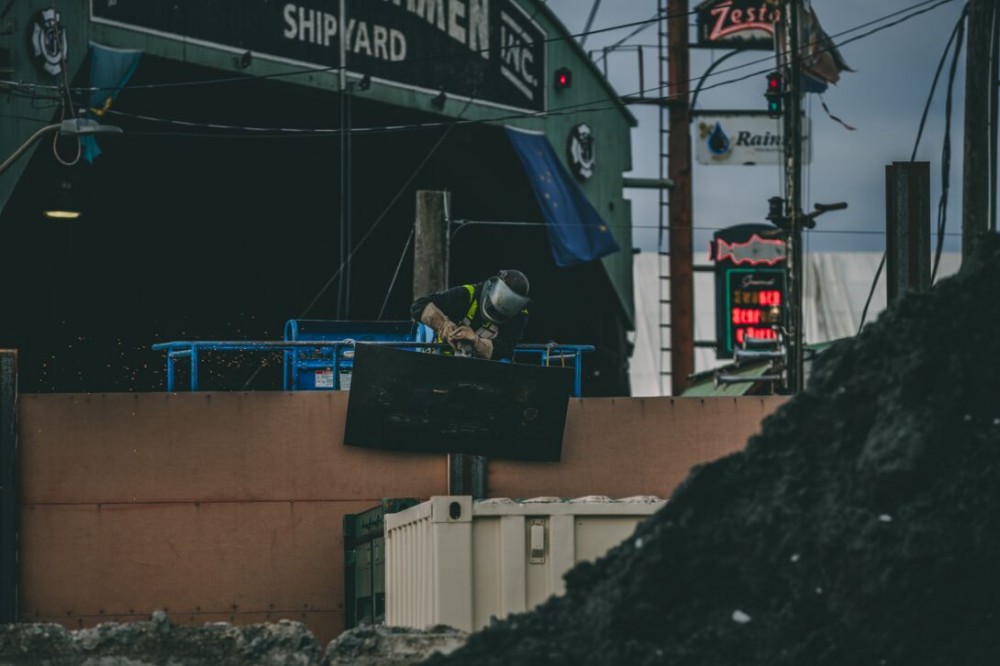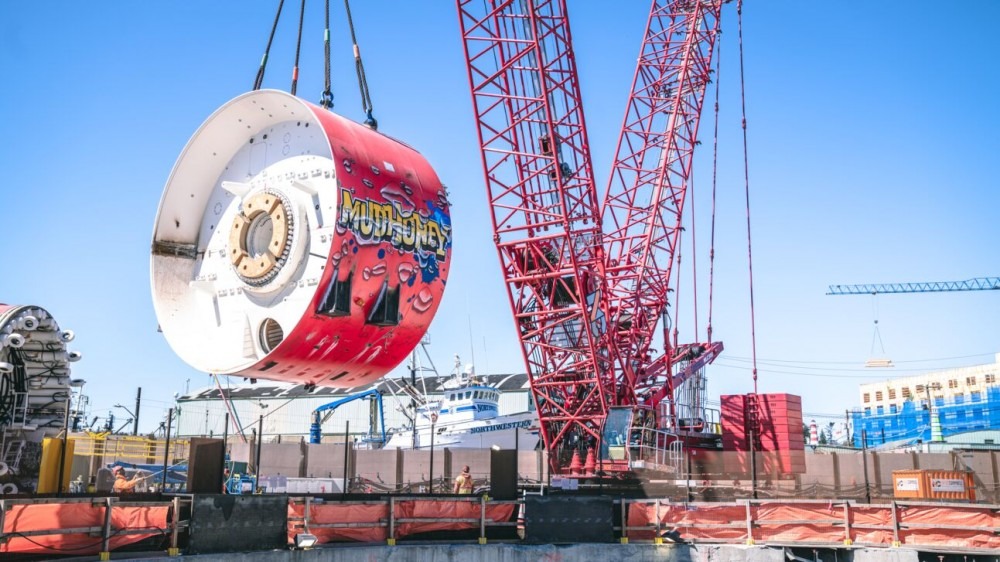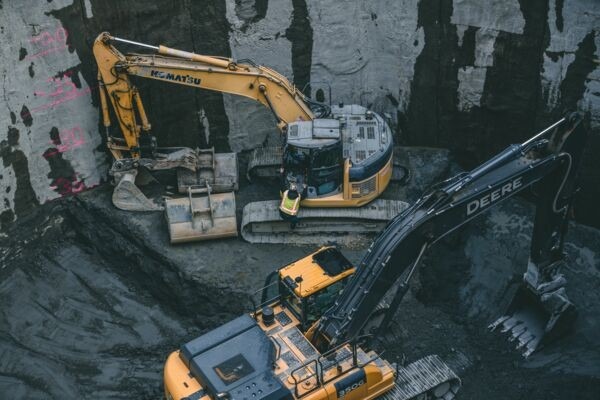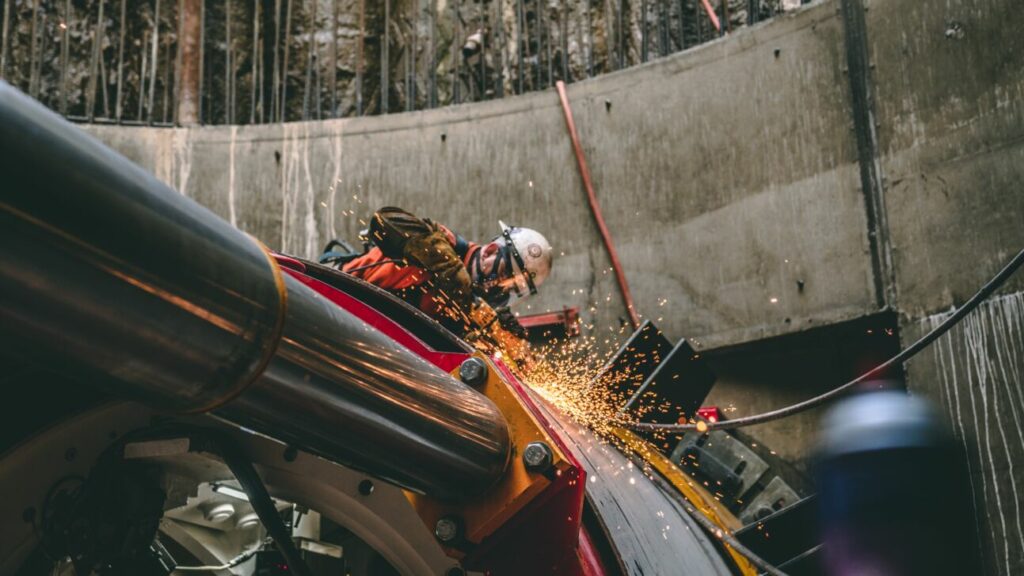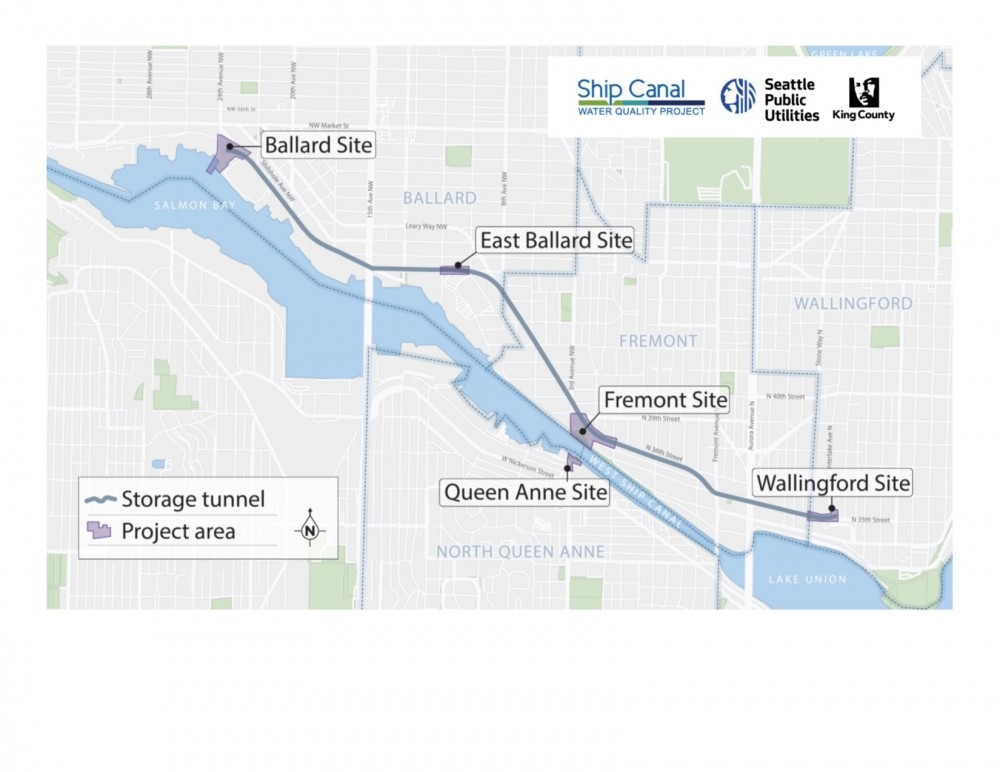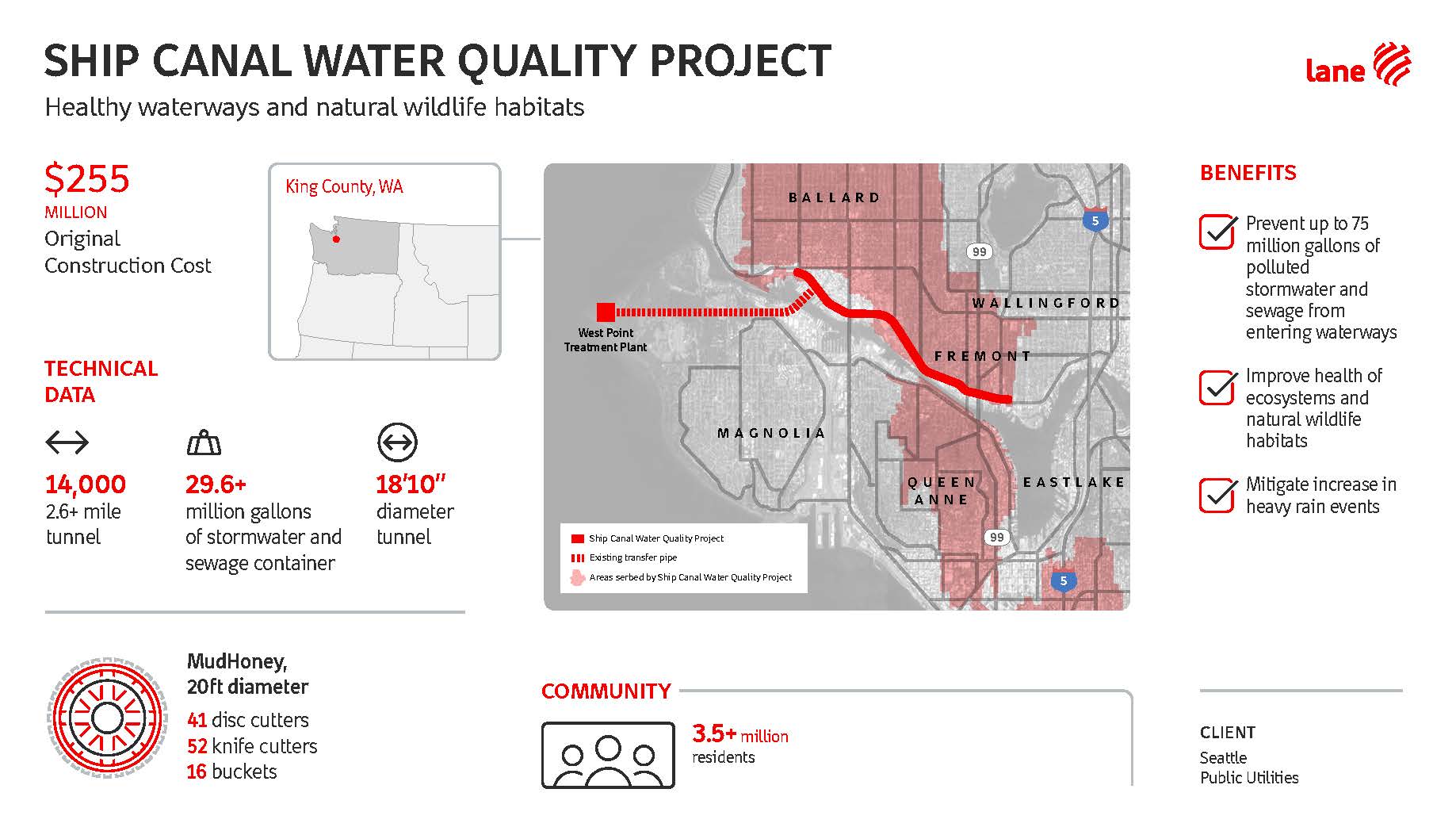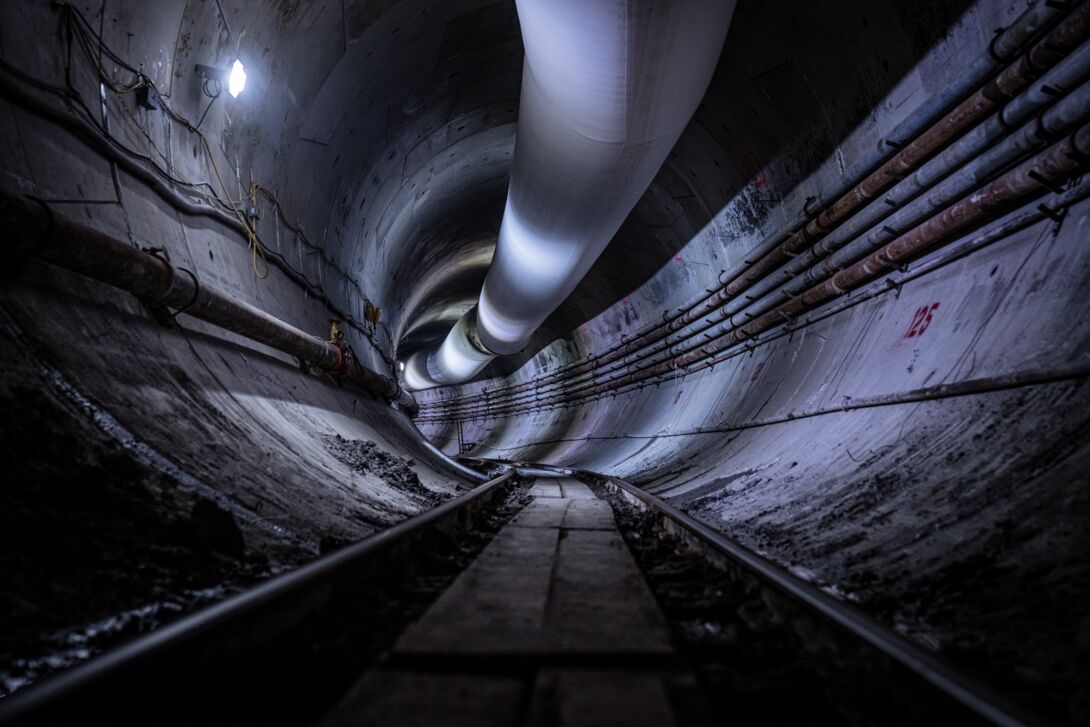

Ship Canal Water Quality Project
Lane’s new 2.7-mile tunnel will capture and temporarily hold more than 29.6 million gallons of stormwater and sewage during heavy rains. The new structure will prevent, on average, up to 75 million gallons of polluted stormwater and sewage from entering the Lake Washington Ship Canal, Salmon Bay, and Lake Union each year.
Overview
Sewage and stormwater from many older parts of the City of Seattle, including the Ballard, Fremont, Wallingford, and Queen Anne neighborhoods, are currently collected and conveyed in one set of pipes. In dry weather conditions, all sewage flows to a local wastewater treatment plant. During wet weather conditions, polluted runoff can exceed the pipes’ capacity and send a mixture of stormwater (90%) and sewage (10%) to outfalls that flow into the nearest water body. These combined sewer overflows, or CSOs, contain contaminants that can make people sick and harm fish, wildlife, and the environment.
The new 2.7-mile, 18’10” diameter tunnel will capture and temporarily hold more than 29.6 million gallons of stormwater and sewage during heavy rains. When the storm passes, flows will be released to the treatment plant. The new structures will prevent, on average, up to 75 million gallons of polluted stormwater and sewage from entering local waterways.
The project is a joint project between the City of Seattle and King County.
Technical Highlights
- 2.7-mile, 18-ft and 10-inch internal-diameter tunnel
BENEFITS/POSITIVE ASPECTS TO COMMUNITY
- Will prevent polluted stormwater and sewage from entering local community waterways
- As a result of decreased overflow and cleaner water, the health of ecosystems and natural wildlife habitats will improve
